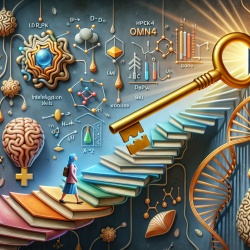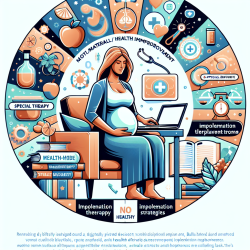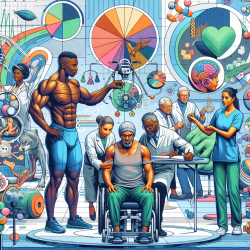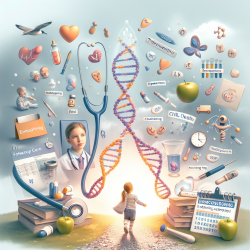The field of genomic mapping is rapidly evolving, offering new insights into complex conditions such as intellectual disability and autism. A recent study titled "Comparative Genomic Mapping Implicates LRRK2 for Intellectual Disability and Autism at 12q12, and HDHD1, as Well as PNPLA4, for X-Linked Intellectual Disability at Xp22.31" sheds light on the genetic underpinnings of these conditions. This blog post aims to help practitioners improve their skills by implementing the outcomes of this research or encouraging further exploration.
The Importance of Genomic Mapping
Genomic mapping is a powerful tool that allows researchers to identify specific regions of chromosomes that may contribute to disease. This study utilized comparative genomic mapping to narrow down chromosomal regions of interest, leading to the identification of candidate genes associated with intellectual disability and autism.
Key Findings from the Research
- LRRK2 at 12q12: The study identified LRRK2 as a potential gene involved in cognitive development. Reduced expression of LRRK2 was observed in individuals with microdeletions in this region, suggesting its role in intellectual disability and autism.
- HDHD1 and PNPLA4 at Xp22.31: These genes were proposed as candidates for X-linked intellectual disability due to their high transcript levels in the human brain. The study highlights their potential involvement in cognitive functioning.
Implications for Practitioners
The findings from this research offer several avenues for practitioners to enhance their skills:
- Enhanced Understanding: By understanding the genetic basis of intellectual disabilities and autism, practitioners can better tailor interventions to individual needs.
- Targeted Interventions: Knowledge of specific genes involved in these conditions can lead to more targeted therapeutic approaches, improving outcomes for students.
- Encouraging Further Research: Practitioners are encouraged to stay informed about ongoing research in genomic mapping to continually refine their approaches.
The Path Forward
This research underscores the importance of integrating genetic insights into educational practices. As our understanding of the genetic factors influencing intellectual disabilities and autism grows, so too does our ability to provide effective support. Practitioners should consider collaborating with researchers to further explore these findings and contribute to the development of innovative strategies.










